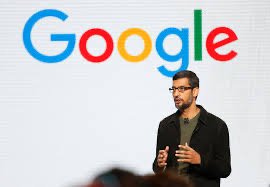Google CEO Sundar Pichai took to the stage at the Shoreline Amphitheatre in Mountain View, California on Wednesday to kick off the company’s annual I/O conference. With a limited live audience in attendance due to ongoing COVID-19 precautions, Pichai made a number of major announcements, with a particular focus on artificial intelligence (AI).
Pichai’s keynote address highlighted the role of AI in shaping the future of technology, with the CEO stating that AI has the potential to be a “transformational” technology that could have a significant impact on people’s lives. He emphasized the importance of building responsible AI systems that are transparent and can be trusted by users.
One of the key announcements made by Pichai was the release of LaMDA (Language Model for Dialogue Applications), a new language model that can hold more natural conversations with users. LaMDA is designed to understand the context of a conversation and provide relevant responses, making it a powerful tool for chatbots, digital assistants, and other conversational AI applications.
Another significant announcement from Pichai was the introduction of a new AI-powered dermatology tool that can help people identify skin conditions using their smartphone cameras. The tool, which is built on Google’s existing AI technology, uses machine learning algorithms to analyze images of skin and provide a list of potential conditions.
Pichai also touched on Google’s ongoing efforts to combat climate change through the use of AI, highlighting the company’s investment in renewable energy and its use of machine learning to optimize energy usage. He also announced the launch of a new feature in Google Maps that can help users find the most eco-friendly route to their destination.
In addition to AI-related announcements, Pichai also discussed Google’s plans for the future of computing, including the development of new hardware and software that can work seamlessly together. He highlighted the company’s work on the Tensor Processing Unit (TPU), an AI chip designed to accelerate machine learning workloads, and discussed the importance of edge computing, which involves processing data closer to where it’s generated.
Pichai’s keynote address at the Google I/O conference was focused on the role of AI in shaping the future of technology. With a number of major announcements related to AI, as well as other areas such as climate change and computing, it’s clear that Google is committed to using technology to make a positive impact on the world.


